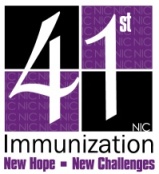
|
|
CDC NIP/NIC Home Page
|
Wednesday, March 7, 2007 - 11:05 AM
52
Successful Strategies that Prevent Vaccine Wastage
Cherry Boardman, Becky Burkhart, and K. Fredrickson. Immunization Program Office, Arizona Department of Health Services, 150 N. 18th Avenue, Suite 120, Phoenix, AZ, USA
Learning Objectives for this Presentation:
By the end of this presentation, participants will be able to identify strategies to prevent vaccine wastage.
Background:
Vaccine wastage due to spoilage or expiration is a concern that all projects participating in the Vaccines for Children (VFC) program have confronted from the inception of the program. Arizona has developed several strategies that keep vaccine wastage at low levels. These strategies can be successfully used by all projects.
Setting:
Arizona experienced vaccine wastage levels above 30% in the first two years of the VFC program inception. Clearly, processes needed to be developed to reduce vaccine wastage. Strategies to counteract the significant vaccine wastage were implemented and Arizona now maintains a wastage rate below 2.5%.
Population:
Over 800 clinic sites participate in the VFC program annually in Arizona. To prevent vaccine wastage, we provide these clinic sites frequent educational opportunities, regular communications, and on-site assessments.
Project Description:
The project focuses on provider education to reduce vaccine wastage. Education methods include: blast faxes and mailings 10-12 times per year, wastage reimbursement language in the annual agreement, conferences and in-service presentations, quarterly immunization services meetings, and during site visits. All newly enrolled providers receive an educational introduction to the program before vaccine is shipped to them. Providers are trained that vaccine wastage due to spoilage or expiration is not acceptable and that they must pay for vaccine wastage above 5% of the doses distributed to them annually.
Results/Lessons Learned:
Provider offices are very busy and vaccine management is only one of the issues that providers face on a daily basis. Our project has learned that the focus on educating providers on how to prevent vaccine wastage will prevent them from having to repay the program for any vaccine wasted.